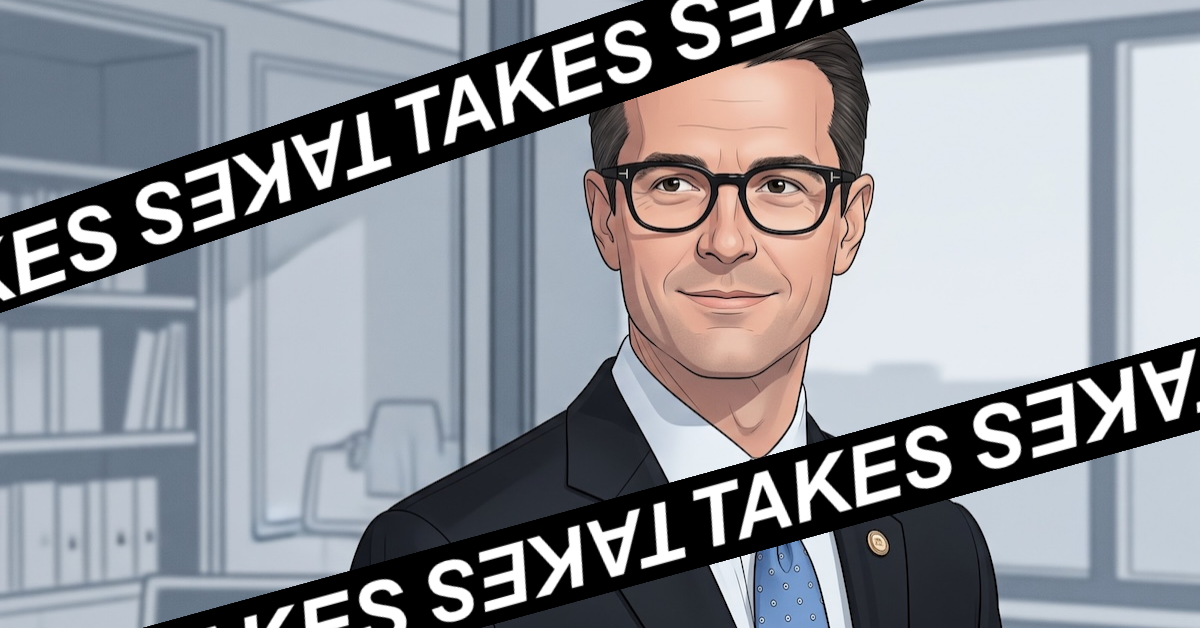Today, the assistant Prosecutor General (AAAG) of the criminal division of the Department of Justice (DOJ) Matthew Galeotti has held a speech in an event hosted by the American Innovation Project in which he enriched the point that the Doj will no longer pursue open-light cryptocurrencies developers who have no intention of committing a crime.
AAAG Galeotti started his speech by telling the public that the deputy prosecutor general (DAG) Todd Blanche had asked Galeotti to speak to the public about the concentration of the Doj on “Ever-Handed Enforcement of the Law” in the space of digital resources.
In AAAG Galeotti’s speech, he referred to a memo Dag Blanche issued in April, in which Dag Blanche said that the Doj would have put an end to its regulation with the execution approach, popularized by the Biden administration, as it concerns the cryptocurrency industry and cryptocurrency developers.
AAAG Galeotti reiterated and strengthened some of the points from Blanche’s reminder, producing a series of moments cited in the process.
Here are some of the high notes that hit:
“The department will not use federal criminal statutes to model a new regulation regime on the digital activities sector. The department will not use accusations as a legislative tool. The department cannot leave innovators to guess what could lead to criminal actions.”
“Our point of view is that simply writing code without bad intentions is not a crime. Innovating new ways in which the economy can archive and transmit value and create wealth without bad intentions is not a crime.”
“In general, developers of neutral tools, without criminal intent, should not be held responsible for the improper use of someone else of these tools. If the improper use of a third party violates criminal law, the third party should be persecuted, not the well -being developer.”
The prominent rumors of the cryptocurrency industry have published some of these promising quotes on X:
While other prominent figures in the sector expressed their skepticism, highlighting some of the quotes of AAAG Galeotti’s speech that left the cause of concern:
Having listened to the speech alone, I would like to say that I moved away from it I feel optimistic or even cautiously optimistic. (Maybe I feel a bit of the latter.)
Mainly, however, I feel a healthy skepticism, the most comparable to that of Van Valkenburgh, since it seems that AAAG Galeotti has left the door open for further Ovalchi of the Doj Prosecutor.
In another way, I believe that artists of the caliber of the developers of Samourai and Roman Storm, co-founder of Tornado Cash, would still be pursued following this prayer, especially judging by some of the comments relating to AAAG Galeotti made in the second half of it.
These comments included the following (non -Italian parties of citations are included for the context):
“If a developer simply contributes to the code to an open source project Without the specific intention of helping criminal conduct, helping or promoting a particular crime or joining a criminal conspiracyHe or she is not responsible criminally. “
“As the Memo Dag clarifies, the Department of Justice will not charge regulatory violations in the cases involving digital activities, such as the money without a license that transmits pursuant to 1960 (B) (1) (a) or (b), in the absence of evidence that a defendant knew the specific legal requirements and voluntarily violated them. [However] In certain circumstances we can bring cases pursuant to 1960 (b) (1) (c), which prohibits the transmission of funds that the accused knows is derived from a criminal defense or is intended to be used to support illegal activities.“
“Where the evidence shows that the software is truly decentralized and automates only peer-to-peer transactions and in which a third party does not have the custody and control over users’ activities, the new accusations of 1960 (b) (1) (c) against a third party will not be approved. However, if there is a criminal intent, other accusations may be appropriate: all the conduct of the subject and services that provide end-to-end will be considered. “
Having covered both the samourai portfolio and the cash cases of the tornado, I saw many “tests” used to illustrate the criminal intention for developers in both cases.
Much was rhetoric linked to developers who react to bad actors using the software they had created in illegal activities, including the cases in which they were apparently trolling.
The most striking application of this is when Samourai developers invited the Russian oligarchs to use their service to evade sanctions:
Now, if I am talking clearly, one of the main lessons that the cryptographic developers should have learned from the cases in cash and Tornado Don’t joke even on bad actors who use your service.
Having said that, it is not illegal to joke him, and in the case of Roman Storm, he made efforts to prevent bad actors from using the cash cash, including the implementation of a chain oracle on the front -nd of the Tornado Cassa.
But I’m going slightly off the track here …
The point I am trying to emphasize is that the comments of AAAG Galeotti on criminal intent can be interpreted in a broad sense and, for this reason, many of the most positive points they have done on the Doj who does not aim to pursue cryptocurrency developers.
And so I agree with Van Valkenburgh as we must continue to press the congress for Safe Harbor through the language in the Blockchain Regulatory Certity Act (BRCA), part of the language from which it was included in the recent draft of the law on clarity and fight the key battles in court.
Because, even in the wake of this apparently positive speech by AAAG Galeotti, the developers are still at risk.
This article is a Take. The opinions expressed are entirely those of the author and do not necessarily reflect those of BTC Inc or Bitcoin Magazine.
